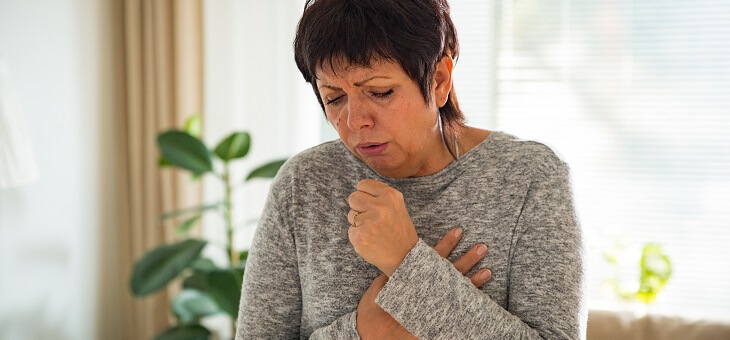As Australia crosses the midpoint of winter in our third year of the COVID pandemic, you’re probably sick of hearing about viruses that can put you at risk.
But for older Australians, another viral menace is on the horizon.
Respiratory Syncytial Virus (RSV) is an infection that has spiked across Australia this year. For most people it produces similar symptoms to a cold, flu or COVID: runny nose, sneezing, sore throat, cough and perhaps an ear infection.
Read: Free COVID RAT program to finish at end of month
So if the symptoms are similar to those other illnesses, is there any need to know about it? For most, the answer is probably not, but RSV can occasionally lead to more serious issues in older people, and those who have a compromised immune system or other serious condition.
For this ‘at risk’ group, a bout of RSV could land them in hospital with pneumonia.
Given the COVID hospital numbers and the ambulance service crises that have hit states, that would not be an ideal outcome.
During the early stages of the pandemic, RSV numbers dropped dramatically, as they did for the common cold and flu, because lockdowns and other preventative measures kept circulation to a minimum.
Read: Immunity for COVID cases could be slashed to 28 days
Prior to that, two main subtypes of the RSV virus, named RSV-A and RSV-B, were in circulation in roughly equal numbers. Whle COVID lockdowns drove both numbers down and RSV-B was virtually eradicated.
Dr John-Sebastian Eden, a senior research fellow from the University of Sydney Institute for Infectious Diseases, said: “Our genetic studies showed that most of the previous RSV strains had gone ‘extinct’ and that for each outbreak only a single genetic lineage had survived all the lockdowns.”
That remaining linkage was RSV-A, and Dr Eden says the surviving strains have returned since governments wound back COVID-related restrictions.
Read: The perks of a cup of coffee
“We need to be prepared for large outbreaks of RSV outside of normal seasonal periods and our health systems to be prepared,” he said.
Dr Eden also warned that a resurgence of RSV-B was likely now that international travel was returning to somewhere near normal numbers.
Unlike COVID and flu, there is no vaccine for RSV so the old-fashioned methods of limiting its spread apply. These include:
- staying at home if you don’t feel well
- covering your nose and mouth when coughing or sneezing
- wearing a mask in crowded places or if you are visiting high risk settings where there are vulnerable people such as aged care facilities or hospitals
- avoiding contact with high-risk people such as infants, older people and those who are immunocompromised until you feel better.
The virus can survive on surfaces or objects for around four to seven hours, so it is important to:
- wash your hands regularly with soap and warm water or use hand sanitiser
- avoid sharing cups and eating utensils
- regularly clean surfaces and items that may be contaminated with droplets, using a household detergent.
If you enjoy our content, don’t keep it to yourself. Share our free eNews with your friends and encourage them to sign up.

